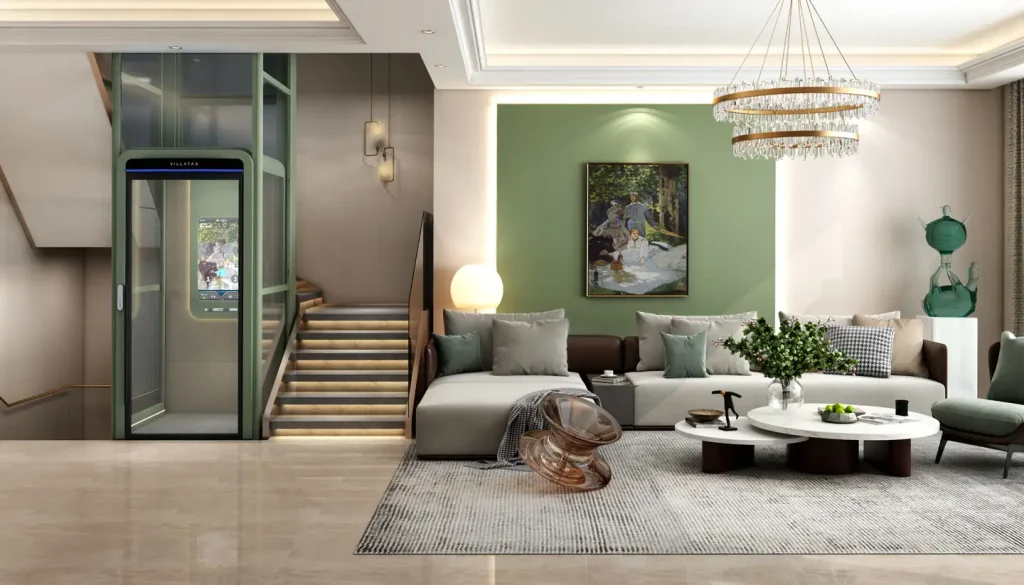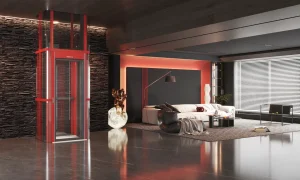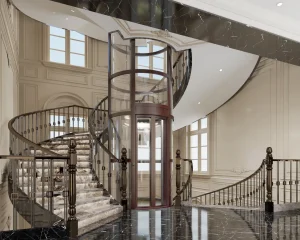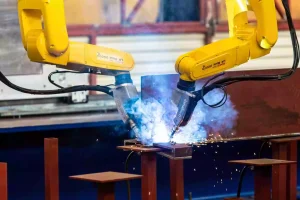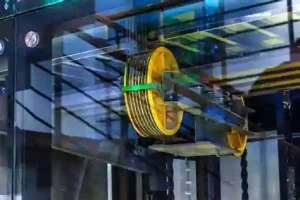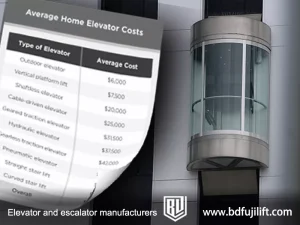Choosing the right small home elevator can feel overwhelming, especially with so many options available at different price points. Whether you’re looking to install a home elevator to improve comfort or to make it easier for family members to move around, it’s essential to understand the factors that influence the cost.
This guide will help you understand everything you need to know about the cost of small home elevators. We’ll break down the key elements that affect the price, so you can make an informed decision that fits both your needs and your budget.
What Is a Small Home Elevator?
A small home elevator is a lift that helps people move between floors in their homes. These elevators are smaller than regular ones and are designed to fit in tight spaces like stairwells or closets. They are used in homes with many levels, especially for people who find it difficult to use stairs.
Small home elevators are powered by either hydraulic or traction systems. They come in different sizes and styles to fit the layout of your home. These elevators are built to be safe, energy-efficient, and easy to operate.
Average Small Home Elevator Cost Ranges in 2025
As of 2025, the cost of small home elevators can vary based on the features you choose. Basic small home elevators usually cost between $3,000 and $6,000. More advanced models with extra features range from $6,000 to $15,000. Custom-made or luxury elevators can cost over $15,000.
| Elevator Type | Price Range | What It Offers |
|---|---|---|
| Hydraulic Small Home Elevator | $3,000 – $8,000 | Known for a smooth and quiet ride. Uses a hydraulic pump to move the elevator car. Best for homes with 2-3 floors. Reliable but consumes more energy. |
| Traction Small Home Elevator | $5,000 – $10,000 | More energy-efficient than hydraulic models. Uses a motor and cables for lifting. Ideal for homes with multiple floors. Requires a machine room but offers long-lasting performance. |
| Machine-Room-Less (MRL) Small Home Elevator | $6,000 – $12,000 | Similar to traction elevators but does not require a machine room. Ideal for homes with limited space. Energy-efficient and offers a quiet, smooth ride. |
| Screw-Drive Small Home Elevator | $4,000 – $8,000 | Uses a lead screw mechanism for movement. Simple to install and maintain. Slower and less smooth than other models but cost-effective for smaller homes with limited use. |
Cost for Different Types of Small Home Elevators
Hydraulic Small Home Elevators ($3,000 – $8,000)
Hydraulic small home elevators are cost between $3,000 and $8,000. These elevators are known for their smooth ride and quiet operation. They use a hydraulic pump to move the elevator car and are often used in homes with two or three floors. While they may consume more energy than other types, they are an excellent choice for homeowners looking for a simple and reliable solution.
Traction Small Home Elevators ($5,000 – $10,000)
Traction small home elevators cost between $5,000 and $10,000. These elevators are more energy-efficient than hydraulic models and are well-suited for homes with many floors. They use a motor and cables to lift the elevator car and provide a smooth and comfortable ride. These models need a machine room, which can take up extra space, but their long-lasting performance makes them a popular choice for those seeking reliability.
Machine-Room-Less (MRL) Small Home Elevators ($6,000 – $12,000)
Machine-room-less (MRL) small home elevators are cost between $6,000 and $12,000. These elevators are like traction models but do not need a dedicated machine room, making them ideal for homes with limited space. MRL elevators offer a quiet, smooth ride and consume less energy than hydraulic models. They are a great choice for homeowners who want a reliable and space-saving solution.
Screw-Drive Small Home Elevators ($4,000 – $8,000)
Screw-drive small home elevators range from $4,000 to $8,000. These elevators use a lead screw mechanism to move the elevator car. They are easy to install and maintain, making them suitable for smaller homes. Although they are slower and less smooth than hydraulic or traction elevators, they provide a simple, cost-effective option for homes with limited use.
Factors That Affect the Cost of Small Home Elevators
The cost of a small home elevator depends on several factors. One of the biggest factors is the type of elevator you choose. Different types, like hydraulic, traction, and screw-drive systems, can cost more or less depending on their features and how they work. Generally, more advanced types like traction and hydraulic systems tend to cost more.
Another important factor is the size of the elevator and the space you need it to fit into. If your home has more floors or requires a larger lift, the cost will go up. Also, the materials used for the elevator, such as stainless steel, glass, or wood, can make the price higher. Premium materials will add to the cost.
The features of the elevator also affect the cost . Elevators with advanced features like smoother rides, quieter operation, automatic leveling, and smart controls will generally cost more. These extra features improve comfort and safety, but they add to the cost .
Finally, the brand of the elevator can play a role in the cost. Well-known brands often charge more because they offer better customer service and more reliable products. But, they can also provide a higher level of support and warranty, which can be valuable in the long run.
What Is the Smallest Size for a Residential Elevator?
The smallest residential elevators typically have a footprint of about 3 feet by 4 feet (approximately 91 cm by 122 cm). This size is usually suitable for homes with limited space or where a compact solution is needed. The elevator car can comfortably fit one person and allow room for a wheelchair or small items like groceries.
But, the exact size can vary depending on the type of elevator and the manufacturer. Some models can be even smaller, while others may offer slightly more space for added comfort. It’s important to measure the available space in your home and consult with the elevator provider to find the best fit.
Keep in mind that while these small elevators are compact, they still provide the necessary functionality and are a great solution for multi-story homes with space constraints.
Conclusion
To sum it up, the cost of a small home elevator can vary widely depending on the type, features, and size. Basic models can start around $3,000, while more advanced options with extra features can cost anywhere from $6,000 to $15,000. If you’re looking for a luxury model with custom designs, the price could go even higher.
No matter your budget, there’s an option that fits your needs. Whether you’re looking for a simple, functional elevator or one with all the bells and whistles, the important thing is to choose the one that works best for your home and lifestyle. Now is a great time to consider adding a small home elevator to your space and enjoy the benefits of easier access and added comfort!
FAQs About Small Home Elevator Cost
The cost of a small home elevator depends on the type, features, and installation requirements. Basic models start around $3,000 to $6,000, while more advanced models with additional features or custom designs range from $6,000 to $15,000. Luxury or custom-made elevators can cost even more. Consider your space and home needs when choosing the right model.
Small home elevators are affordable to operate. The main costs are electricity and occasional maintenance. Energy-efficient models use little electricity, and maintenance costs are generally low. Regular servicing will help keep the elevator running smoothly, but overall running costs are manageable for most homeowners.
How much should I spend on a good small home elevator?
Your budget depends on your needs and desired features. Basic models cost between $3,000 and $6,000, suitable for homes with a few floors. If you want extra features, like smooth operation, custom costs, or high-quality materials, expect to spend $6,000 to $10,000. Luxury or specialized designs can cost more. Consider how often you’ll use the elevator and which features are most important for your home.


